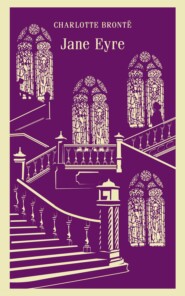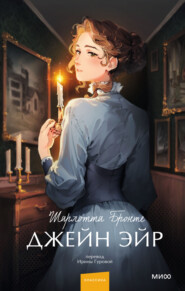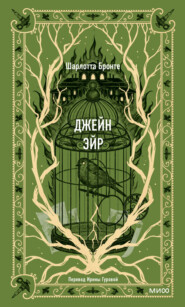По всем вопросам обращайтесь на: info@litportal.ru
(©) 2003-2024.
✖
The Professor
Автор
Год написания книги
2019
Настройки чтения
Размер шрифта
Высота строк
Поля
‘A famous excuse! You ought to have known me; I knew you, though you were going ahead like a steam-engine. Are the police after you?’
‘It wouldn’t be worth their while; I’m not of consequence enough to attract them.’
‘Alas, poor shepherd! Alack and well-a-day! What a theme for regret, and how down in the mouth you must be, judging from the sound of your voice! But since you’re not running from the police, from whom are you running? the devil?’
‘On the contrary, I am going post to him.’
‘That is well – you’re just in luck: this is Tuesday evening; there are scores of market gigs and carts returning to Dinneford tonight; and he, or some of his, have a seat in all regularly; so, if you’ll step in and sit half-an-hour in my bachelor’s parlour, you may catch him as he passes without much trouble. I think though you’d better let him alone tonight, he’ll have so many customers to serve; Tuesday is his busy day in X— and Dinneford; come in at all events.’
He swung the wicket open as he spoke.
‘Do you really wish me to go in?’ I asked.
‘As you please – I’m alone; your company for an hour or two would be agreeable to me; but, if you don’t choose to favour me so far, I’ll not press the point. I hate to bore anyone.’
It suited me to accept the invitation as it suited Hunsden to give it. I passed through the gate, and followed him to the front door, which he opened; thence we traversed a passage, and entered his parlour; the door being shut, he pointed me to an armchair by the hearth; I sat down, and glanced round me.
It was a comfortable room, at once snug and handsome; the bright grate was filled with a genuine —shire fire, red, clear, and generous, no penurious South-of-England embers heaped in the corner of a grate. On the table a shaded lamp diffused around a soft, pleasant, and equal light; the furniture was almost luxurious for a young bachelor, comprising a couch and two very easy chairs; bookshelves filled the recesses on each side of the mantelpiece; they were well-furnished, and arranged with perfect order. The neatness of the room suited my taste; I hate irregular and slovenly habits. From what I saw I concluded that Hunsden’s ideas on that point corresponded with my own. While he removed from the centre-table to the sideboard a few pamphlets and periodicals, I ran my eye along the shelves of the bookcase nearest me. French and German works predominated, the old French dramatists, sundry modern authors, Thiers, Villemain, Paul de Kock, George Sand, Eugene Sue; in German – Goethe, Schiller, Zschokke, Jean Paul Richter; in English there were works on Political Economy. I examined no further, for Mr Hunsden himself recalled my attention.
‘You shall have something,’ said he, ‘for you ought to feel disposed for refreshment after walking nobody knows how far on such a Canadian night as this; but it shall not be brandy-and-water, and it shall not be a bottle of port, nor ditto of sherry. I keep no such poison. I have Rhein-wein for my own drinking, and you may choose between that and coffee.’
Here again Hunsden suited me: if there was one generally received practice I abhorred more than another, it was the habitual imbibing of spirits and strong wines. I had, however, no fancy for his acid German nectar, but I liked coffee, so I responded, ‘Give me some coffee, Mr Hunsden.’
I perceived my answer pleased him; he had doubtless expected to see a chilling effect produced by his steady announcement that he would give me neither wine nor spirits; he just shot one searching glance at my face to ascertain whether my cordiality was genuine or a mere feint of politeness. I smiled, because I quite understood him; and, while I honoured his conscientious firmness, I was amused at his mistrust; he seemed satisfied, rang the bell, and ordered coffee, which was presently brought; for himself, a bunch of grapes and half a pint of something sour sufficed. My coffee was excellent; I told him so, and expressed the shuddering pity with which his anchorite fare inspired me. He did not answer, and I scarcely think heard my remark. At that moment one of those momentary eclipses I before alluded to had come over his face, extinguishing his smile, and replacing, by an abstracted and alienated look, the customarily shrewd, bantering glance of his eye. I employed the interval of silence in a rapid scrutiny of his physiognomy. I had never observed him closely before; and, as my sight is very short, I had gathered only a vague, general idea of his appearance; I was surprised now, on examination, to perceive how small, and even feminine, were his lineaments; his tall figure, long and dark locks, his voice and general bearing, had impressed me with the notion of something powerful and massive; not at all: – my own features were cast in a harsher and squarer mould than his. I discerned that there would be contrasts between his inward and outward man; contentions, too; for I suspected his soul had more of will and ambition than his body had of fibre and muscle. Perhaps, in these incompatibilities of the ‘physique’ with the ‘morale,’ lay the secret of that fitful gloom; he would but could not, and the athletic mind scowled scorn on its more fragile companion. As to his good looks, I should have liked to have a woman’s opinion on that subject; it seemed to me that his face might produce the same effect on a lady that a very piquant and interesting, though scarcely pretty, female face would on a man. I have mentioned his dark locks – they were brushed sideways above a white and sufficiently expansive forehead; his cheek had a rather hectic freshness; his features might have done well on canvas, but indifferently in marble: they were plastic; character had set a stamp upon each; expression re-cast them at her pleasure, and strange metamorphoses she wrought, giving him now the mien of a morose bull, and anon that of an arch and mischievous girl; more frequently, the two semblances were blent, and a queer, composite countenance they made.
Starting from his silent fit, he began, ‘William! what a fool you are to live in those dismal lodgings of Mrs King’s, when you might take rooms here in Grove Street, and have a garden like me!’
‘I should be too far from the mill.’
‘What of that? It would do you good to walk there and back two or three times a day; besides, are you such a fossil that you never wish to see a flower or a green leaf?’
‘I am no fossil.’
‘What are you then? You sit at that desk in Crimsworth’s counting-house day by day and week by week, scraping with a pen on paper, just like an automaton; you never get up; you never say you are tired; you never ask for a holiday; you never take change or relaxation; you give way to no excess of an evening; you neither keep wild company, nor indulge in strong drink.’
‘Do you, Mr Hunsden?’
‘Don’t think to pose me with short questions; your case and mine are diametrically different, and it is nonsense attempting to draw a parallel. I say, that when a man endures patiently what ought to be unendurable, he is a fossil.’
‘Whence do you acquire the knowledge of my patience?’
‘Why, man, do you suppose you are a mystery? The other night you seemed surprised at my knowing to what family you belonged; now you find subject for wonderment in my calling you patient. What do you think I do with my eyes and ears? I’ve been in your counting-house more than once when Crimsworth has treated you like a dog; called for a book, for instance, and when you gave him the wrong one, or what he chose to consider the wrong one, flung it back almost in your face; desired you to shut or open the door as if you had been his flunkey; to say nothing of your position at the party about a month ago, where you had neither place nor partner, but hovered about like a poor, shabby hanger-on; and how patient you were under each and all of these circumstances!’
‘Well, Mr Hunsden, what then?’
‘I can hardly tell you what then; the conclusion to be drawn as to your character depends upon the nature of the motives which guide your conduct; if you are patient because you expect to make something eventually out of Crimsworth, notwithstanding his tyranny, or perhaps by means of it, you are what the world calls an interested and mercenary, but may be a very wise fellow; if you are patient because you think it a duty to meet insult with submission, you are an essential sap, and in no shape the man for my money; if you are patient because your nature is phlegmatic, flat, inexcitable, and that you cannot get up to the pitch of resistance, why, God made you to be crushed; and lie down by all means, and lie flat, and let Juggernaut ride well over you.’
Mr Hunsden’s eloquence was not, it will be perceived, of the smooth and oily order. As he spoke, he pleased me ill. I seem to recognize in him one of those characters who, sensitive enough themselves, are selfishly relentless towards the sensitiveness of others. Moreover, though he was neither like Crimsworth nor Lord Tynedale, yet he was acrid, and, I suspected, overbearing in his way: there was a tone of despotism in the urgency of the very reproaches by which, he aimed at goading the oppressed into rebellion against the oppressor. Looking at him still more fixedly than I had yet done, I saw written in his eye and mien a resolution to arrogate to himself a freedom so unlimited that it might often trench on the just liberty of his neighbours. I rapidly ran over these thoughts, and then I laughed a low and involuntary laugh, moved thereto by a slight inward revelation of the inconsistency of man. It was as I thought: Hunsden had expected me to take with calm his incorrect and offensive surmises, his bitter and haughty taunts; and himself was chafed by a laugh, scarce louder than a whisper.
His brow darkened, his thin nostril dilated a little.
‘Yes,’ he began, ‘I told you that you were an aristocrat, and who but an aristocrat would laugh such a laugh as that, and look such a look? A laugh frigidly jeering; a look lazily mutinous; gentlemanlike irony, patrician resentment. What a nobleman you would have made, William Crimsworth! You are cut out for one; pity Fortune has baulked Nature! Look at the features, figure, even to the hands – distinction all over – ugly distinction! Now, if you’d only an estate and a mansion, and a park, and a title, how you could play the exclusive, maintain the rights of your class, train your tenantry in habits of respect to the peerage, oppose at every step the advancing power of the people, support your rotten order, and be ready for its sake to wade knee-deep in churls’ blood; as it is, you’ve no power; you can do nothing; you’re wrecked and stranded on the shores of commerce; forced into collision with practical men, with whom you cannot cope, for you’ll never be a tradesman.’
The first part of Hunsden’s speech moved me not at all, or, if it did, it was only to wonder at the perversion into which prejudice had twisted his judgment of my character; the concluding sentence, however, not only moved, but shook me; the blow it gave was a severe one, because Truth wielded the weapon. If I smiled now, it was only in disdain of myself.
Hunsden saw his advantage; he followed it up.
‘You’ll make nothing by trade,’ continued he; ‘nothing more than the crust of dry bread and the draught of fair water on which you now live; your only chance of getting a competency lies in marrying a rich widow, or running away with an heiress.’
‘I leave such shifts to be put in practice by those who devise them,’ said I, rising.
‘And even that is hopeless,’ he went on coolly. ‘What widow would have you? Much less, what heiress? You’re not bold and venturesome enough for the one, nor handsome and fascinating enough for the other. You think perhaps you look intelligent and polished; carry your intellect and refinement to market, and tell me in a private note what price is bid for them.’
Mr Hunsden had taken his tone for the night; the string he struck was out of tune, he would finger no other. Averse to discord, of which I had enough every day and all day long, I concluded, at last, that silence and solitude were preferable to jarring converse; I bade him goodnight.
‘What! Are you going, lad? Well, goodnight: you’ll find the door.’ And he sat still in front of the fire, while I left the room and the house. I had got a good way on my return to my lodgings before I found out that I was walking very fast, and breathing very hard, and that my nails were almost stuck into the palms of my clenched hands, and that my teeth were set fast; on making this discovery, I relaxed both my pace, fists, and jaws, but I could not so soon cause the regrets rushing rapidly through my mind to slacken their tide. Why did I make myself a tradesman? Why did I enter Hunsden’s house this evening? Why, at dawn tomorrow, must I repair to Crimsworth’s mill? All that night did I ask myself these questions, and all that night fiercely demanded of my soul an answer. I got no sleep; my head burned, my feet froze; at last the factory bells rang, and I sprang from my bed with other slaves.
CHAPTER 5 (#ulink_306068a6-e7dc-5136-88ae-d9d46ab30537)
There is a climax to everything, to every state of feeling as well as to every position in life. I turned this truism over in my mind as, in the frosty dawn of a January morning, I hurried down the steep and now icy street which descended from Mrs King’s to the Close. The factory workpeople had preceded me by nearly an hour, and the mill was all lighted up and in full operation when I reached it. I repaired to my post in the counting-house as usual; the fire there, but just lit, as yet only smoked; Steighton had not yet arrived. I shut the door and sat down at the desk; my hands, recently washed in half-frozen water, were still numb; I could not write till they had regained vitality, so I went on thinking, and still the theme of my thoughts was the ‘climax’. Self-dissatisfaction troubled exceedingly the current of my meditations.
‘Come, William Crimsworth,’ said my conscience, or whatever it is that within ourselves takes ourselves to task – ‘come, get a clear notion of what you would have, or what you would not have. You talk of a climax; pray has your endurance reached its climax? It is not four months old. What a fine resolute fellow you imagined yourself to be when you told Tynedale you would tread in your father’s steps, and a pretty treading you are likely to make of it! How well you like X—! Just at this moment how redolent of pleasant associations are its streets, its shops, its warehouses, its factories! How the prospect of this day cheers you! Letter-copying till noon, solitary dinner at your lodgings, letter-copying till evening, solitude; for you neither find pleasure in Brown’s, nor Smith’s, nor Nicholl’s, nor Eccle’s company; and as to Hunsden, you fancied there was pleasure to be derived from his society – he! he! how did you like the taste you had of him last night? was it sweet? Yet he is a talented, an original-minded man, and even he does not like you; your self-respect defies you to like him; he has always seen you to disadvantage; he always will see you to disadvantage; your positions are unequal, and were they on the same level your minds could not; assimilate; never hope, then, to gather the honey of friendship out of that thorn-guarded plant. Hello, Crimsworth! where are your thoughts tending? You leave the recollection of Hunsden as a bee would a rock, as a bird a desert; and your aspirations spread eager wings towards a land of visions where, now in advancing daylight – in X— daylight – you dare to dream of congeniality, repose, union. Those three you will never meet in this world; they are angels. The souls of just men made perfect may encounter them in heaven, but your soul will never be made perfect. Eight o’clock strikes! your hands are thawed, get to work!’
‘Work? why should I work?’ said I sullenly: ‘I cannot please though I toil like a slave.’ ‘Work, work!’ reiterated the inward voice. ‘I may work, it will do no good,’ I growled; but nevertheless I drew out a packet of letters and commenced my task – task thankless and bitter as that of the Israelite crawling over the sun-baked fields of Egypt in search of straw and stubble wherewith to accomplish his tale of bricks.
About ten o’clock I heard Mr Crimsworth’s gig turn into the yard, and in a minute or two he entered the counting-house. It was his custom to glance his eye at Steighton and myself, to hang up his mackintosh, stand a minute with his back to the fire, and then walk out. Today he did not deviate from his usual habits; the only difference was that when he looked at me, his brow, instead of being merely hard, was surly; his eye, instead of being cold, was fierce. He studied me a minute or two longer than usual, but went out in silence.
Twelve o’clock arrived; the bell rang for a suspension of labour; the workpeople went off to their dinners; Steighton, too, departed, desiring me to lock the counting-house door, and take the key with me. I was tying up a bundle of papers, and putting them in their place, preparatory to closing my desk, when Crimsworth reappeared at the door, and entering closed it behind him.
‘You’ll stay here a minute,’ said he, in a deep, brutal voice, while his nostrils distended and his eye shot a spark of sinister fire.
Alone with Edward I remembered our relationship, and remembering that forgot the difference of position; I put away deference and careful forms of speech; I answered with simple brevity.
‘It is time to go home,’ I said, turning the key in my desk.
‘You’ll stay here!’ he reiterated. ‘And take your hand off that key! leave it in the lock!’
‘Why?’ asked I. ‘What cause is there for changing my usual plans?’
‘Do as I order,’ was the answer, ‘and no questions! You are my servant; obey me! What have you been about—?’ He was going on in the same breath, when an abrupt pause announced that rage had for the moment got the better of articulation.
‘You may look, if you wish to know,’ I replied. ‘There is the open desk, there are the papers.’
‘Confound your insolence! What have you been about?’
‘Your work, and have done it well.’
‘Hypocrite and twaddler! Smooth-faced, snivelling greasehorn!’ (this last term is, I believe, purely —shire, and alludes to the horn of black, rancid whale-oil, usually to be seen suspended to cart-wheels, and employed for greasing the same.)

















